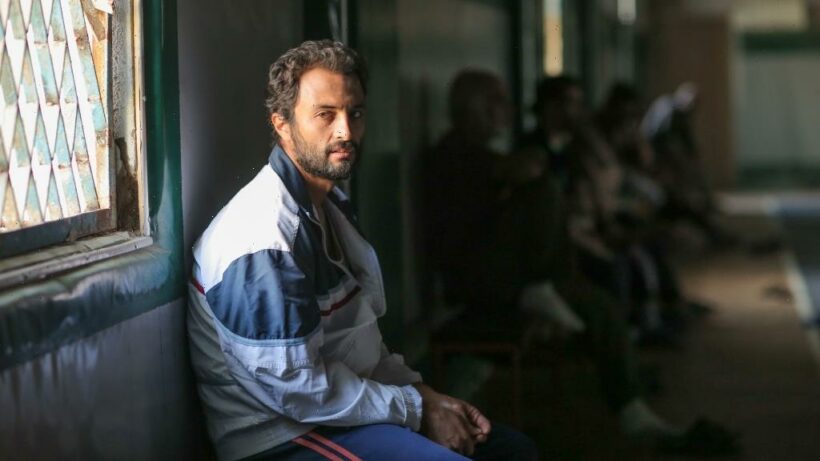Editors note: Deadline’s Read the Screenplay series debuts and celebrates the scripts of films that will be factors in this year’s movie awards race.
For Iranian writer-director Asghar Farhadi, A Hero was the culmination of a long rumination on a recurring phenomenon he’d noticed being reported in his nation’s media.
“I had been reading stories like this in the press for some time,” Farhadi says of the genesis of his film’s tale, which centers on Rahim (Amir Jadidi), a man imprisoned for unpaid debts who, during a brief furlough, returns a newly discovered handbag filled with gold coins to its rightful owner rather than use the loot to replay his delinquent accounts. It’s a good deed that nevertheless deeply complicates Rahim’s situation.
“[I had seen stories] of ordinary individuals, who briefly made newspaper headlines because of an altruistic act,” Farhadi says. “These stories often had common peculiarities. A Hero was not inspired by a specific news item, but while writing it, I had these stories in mind.”
“At the beginning, I had a vague idea from these true stories,” adds the filmmaker. “I always work the same way: the spark can come from an image, a feeling, a succinct plot which will develop thereafter. Sometimes all of this can stay in a corner of my mind, without my suspecting that it will one day lead to a screenplay. Time is an important ally. Some of these seeds disappear on their own, others persist, grow and stay in you in a state of unfinished process, waiting for you to dedicate yourself to them.”
Farhadi allowed his creative process to unfold at its own pace, where “through scattered notes, an idea begins to emerge,” he says. “Then comes the research and the first sketches which themselves dictate the path to take. Almost all of my stories have developed in my mind in this progressive way. I do not remember ever having been able to conceive of a complete story with a beginning, a middle and an end from the outset.”
Over several months, the filmmaker refined his ideas with a series of color-coded notecards. “I choose one color for the ideas I am sure I will somehow incorporate into the script, another for those of which I am less sure,” he says. “Many of these cards will not be used directly in the writing phase. They do not provide clear information for the script; however, they help me to better understand my characters. During this preparatory phase, many aspects of the characters’ backgrounds are developed and leave more or less visible traces in the film.”
Ultimately, as the plot, characters and themes coalesced, Farhadi recognized that the whole reflected a new take on the gray area of human nature that his previous films have explored.
“Everyone has their reasons for acting the way they do, even if they are not necessarily aware of these reasons – sometimes they are not clear or easy to summarize. They are a mass of contradictions. In reality, people can take years to find within themselves the reasons for their actions, deeply buried within their past,” he says, noting that decoding the root motivations is not about justifying or legitimizing bad behavior, but simply to understand it. “By taking note of the reasons that prompted an individual to act, we can understand it, without necessarily agreeing with it.”
Click below to read the script for A Hero, which had its world premiere at the Cannes Film Festival, winning the Grand Prix, before becoming Iran’s submission to the International Feature Oscar race where it has been shortlisted ahead of the February 8 nominations (Farhadi already has two Oscars, for A Separation and The Salesman). Amazon Studios released the pic in U.S. theaters on January 7 and dropped it on Prime Video on January 21.
Must Read Stories
New Line Moving Forward With ‘Mortal Kombat’ Sequel; ‘Moon Knight’ Writer Scripting
DGA TV Noms: All-‘Succession’ Drama Series Race; ‘Ted Lasso’ Leads Comedies
Bill Nighy’s ‘Living’ To SPC; Latest Sales, Reviews, Sundance Studio Videos & More
CEO Of ‘Line Of Duty’ Producer On Controversial Ending & Brit Broadcasting’s Future
Read The Screenplay Series
‘Spider-Man: No Way Home’: Read The Screenplay For A Marvel That’s Now One Of The Biggest Movies Of All Time
‘No Time To Die’: Read The Screenplay That Said Goodbye To Daniel Craig As James Bond
‘Belfast’: Read The Screenplay For Kenneth Branagh’s Look Back At Growing Up In Northern Ireland
Read More About:
Source: Read Full Article





